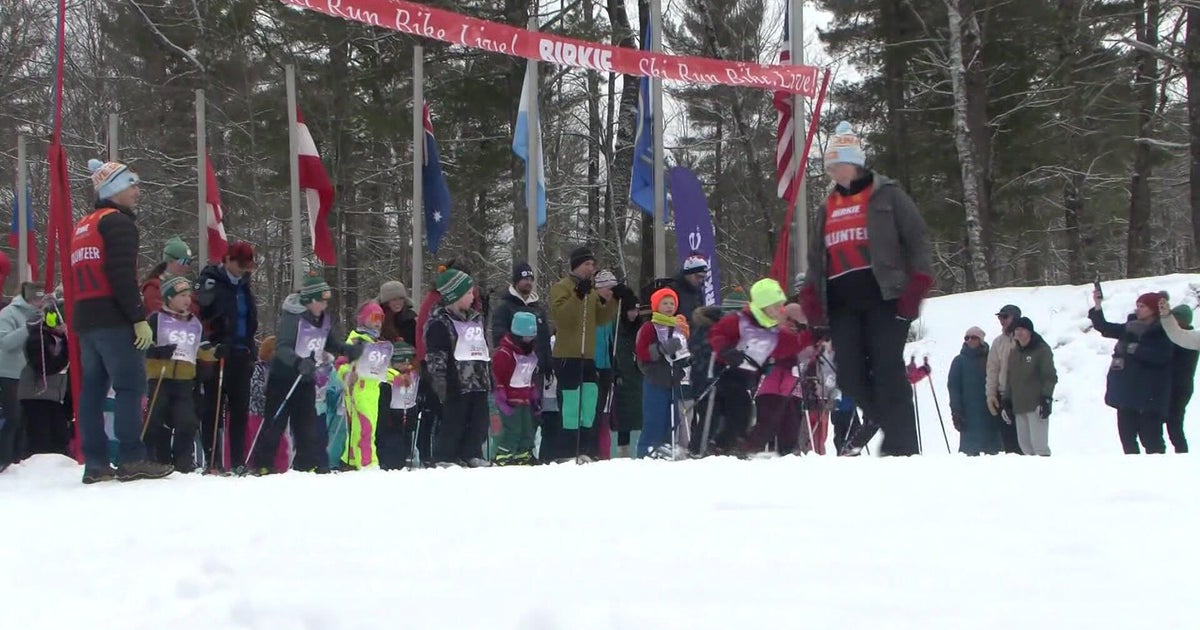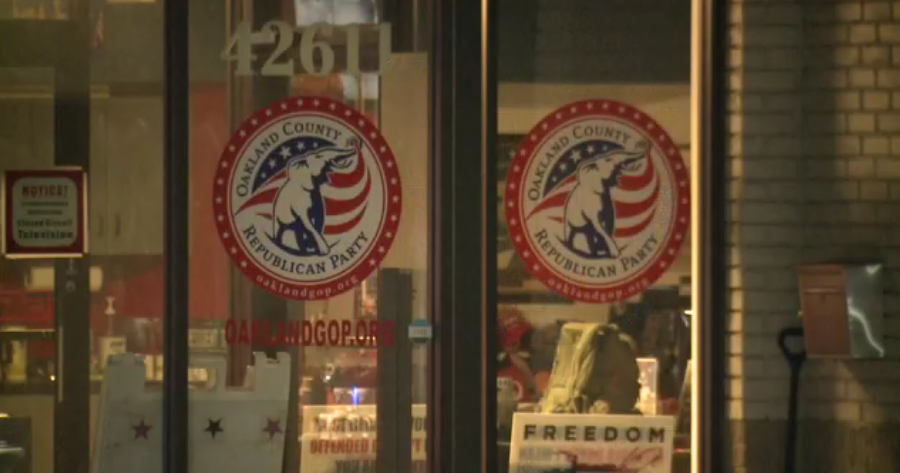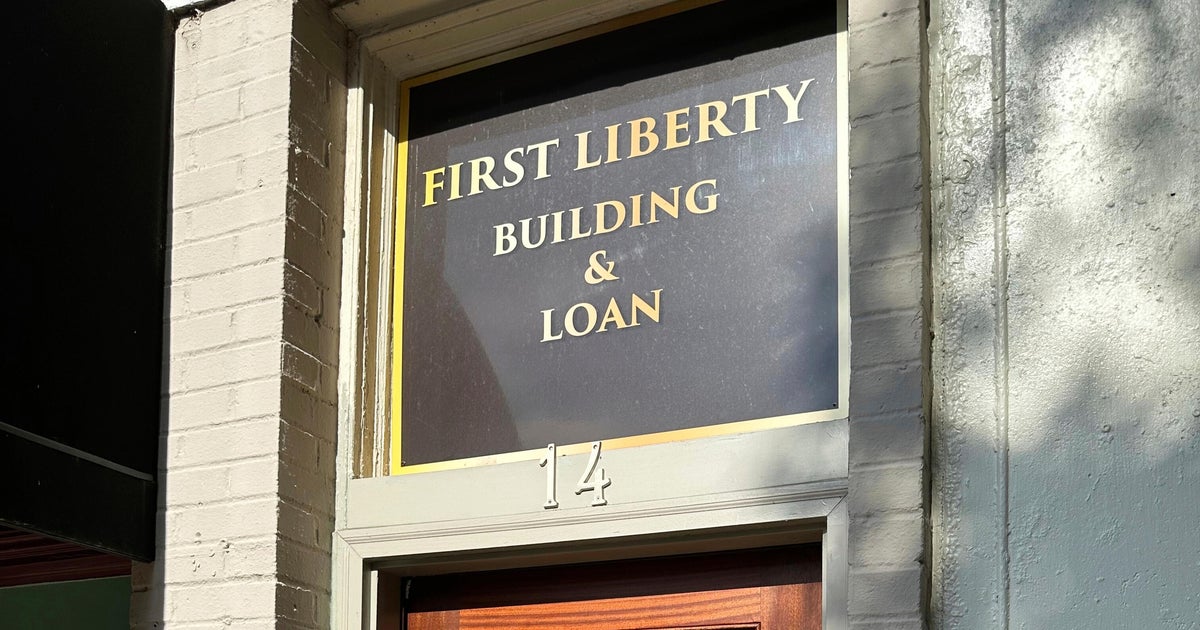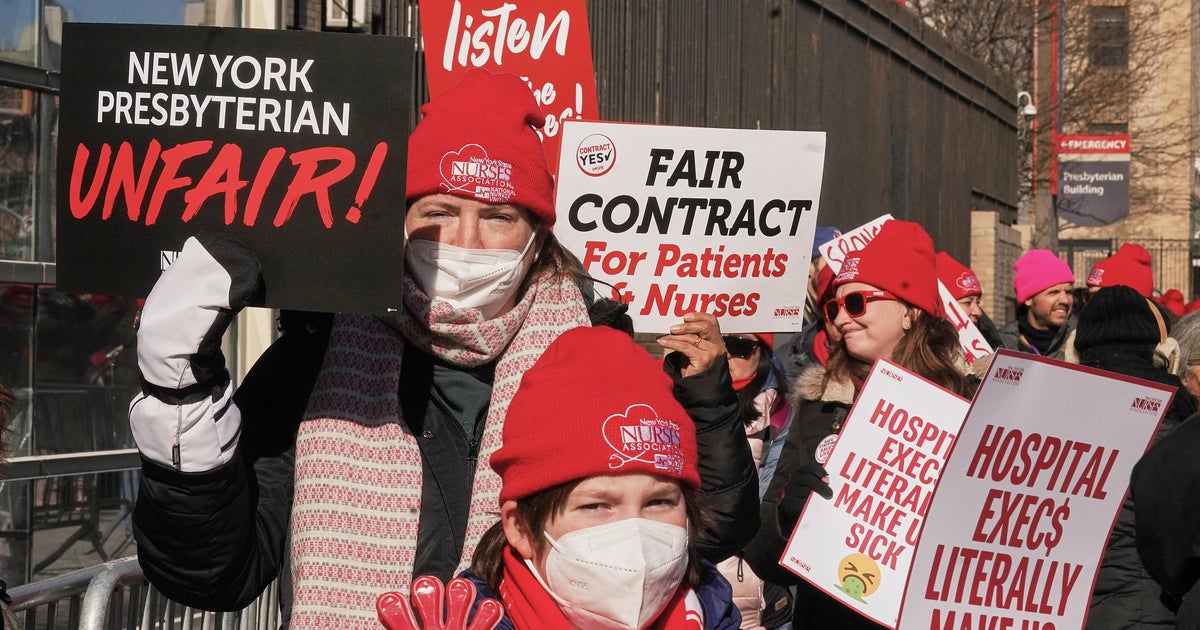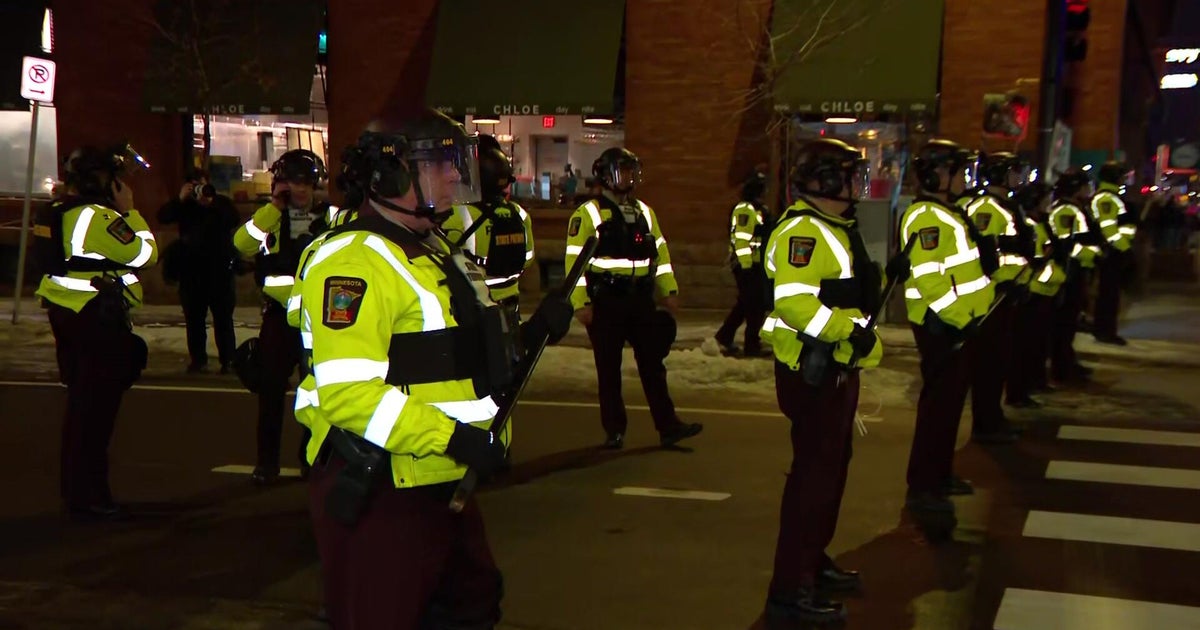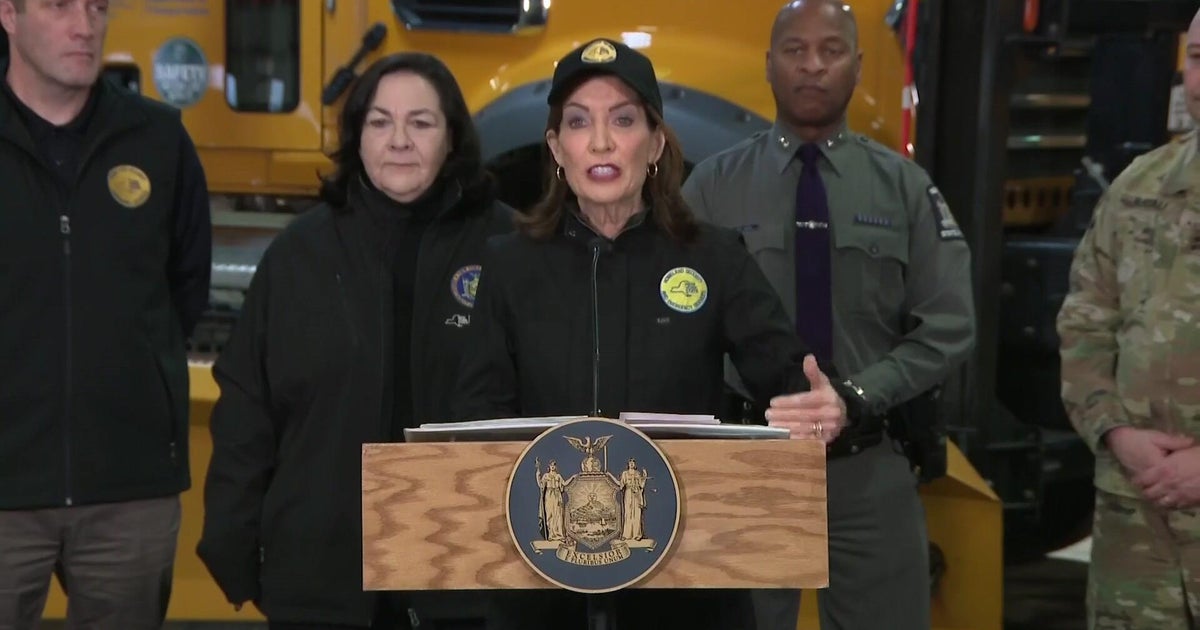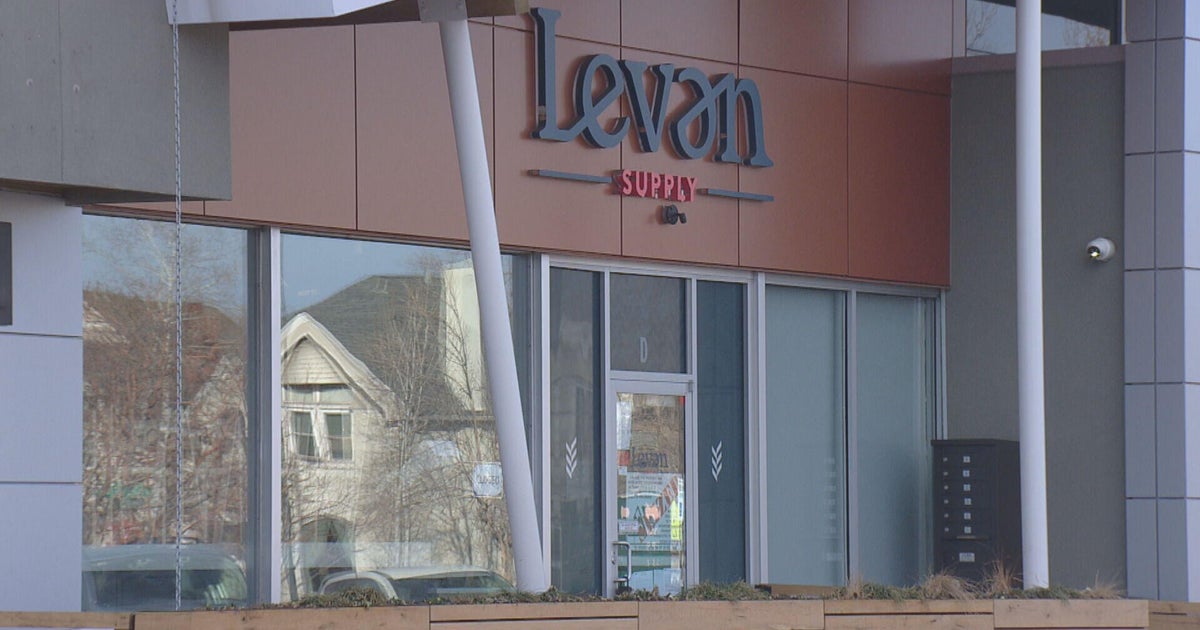Wisconsin Democrats Could Stay Away For Weeks
MADISON, Wis. (AP) -- Democrats on the run in Wisconsin avoided state troopers Friday and threatened to stay in hiding for weeks, potentially paralyzing a state government they no longer control.
The party's stand against balancing the state's budget by cutting the pay, benefits and collective bargaining rights of public workers is the boldest action yet by Democrats to push back against last fall's GOP wave.
But the dramatic strategy that's clogged the Capitol with thousands of protesters clashes with one essential truth: Republicans told everyone unions would be a target, and the GOP has more than enough votes to pass its plans once the Legislature can convene.
The 14 Senate Democrats left the state Thursday, delaying action in that chamber on a sweeping anti-union bill. Sen. Jon Erpenbach, who was among those who fled, said Friday that the group was prepared to be away for weeks, although he would like the standoff to end as soon as possible.
"That really, truly is up to the governor," he told The Associated Press in an interview Friday at a downtown Chicago hotel. "It's his responsibility to bring the state together. The state is not unified. It is totally torn part."
Erpenbach (URP'-ehn-bahk) accused new Republican Gov. Scott Walker of trying to rush the legislation, calling the governor's style "dictatorial" at times.
"We all didn't want to do this. I didn't want to do this," he added. "The only other option we had to slow things down, was to leave."
All 14 lawmakers planned to meet somewhere near Chicago to discuss their options, said Erpenbach, who said he had not spoken to any Republican lawmakers since leaving.
Meanwhile, massive protests at the state Capitol entered a fourth day as demonstrators vowed to stay as long as was needed to get the concessions they want.
"Hell no, we won't go!" they chanted inside the Capitol as they banged on drums, sat cross-legged in the halls and waved signs comparing Walker to former Egyptian leader Hosni Mubarak.
Thousands of teachers have joined the protests by calling in sick, forcing school districts -- including the state's largest, in Milwaukee -- to cancel classes.
Outside the Capitol, demonstrators marched in a procession led by Jesse Jackson, who said workers "should be at the table full-strength to solve the problem."
The governor "should not crush them to solve the problem. The labor-business-government is the balancing wheel. If you crush labor, there is no balance."
The leader of the state's largest public employee union said workers are willing to make financial concessions but will not give up their bargaining rights.
Marty Beil, executive director of the Wisconsin State Employees Union, issued a statement saying the protests would continue until Walker sits down with the unions.
In a sign that the commotion might be causing other problems for the governor, he pushed back releasing his two-year budget plan by one week to March 1.
He will still deliver a speech to lawmakers about the budget as planned on Tuesday, but won't release his actual bill until the following week. A spokesman did not immediately return messages seeking comment.
The governor insists the concessions he is seeking from public workers -- including higher health insurance and pension contributions -- are necessary to deal with the state's projected $3.6 billion budget shortfall and to avoid layoffs.
Eliminating their collective bargaining rights, except over wage increases not greater than the Consumer Price Index, is necessary in order to give the state and local governments and schools the flexibility needed to deal with upcoming cuts in state aid, Walker said.
The arguments don't wash with Democrats who say the fight is really about political power and quashing the unions, longtime supporters of Democrats. Protesters and Democrats are also furious over the speed that Walker's moving -- he publically unveiled the proposal just one week ago.
"This isn't the Wisconsin we want," said Mary Bell, president of the 98,000-member statewide teachers' union. "We want a voice in the process."
Ironically, Democrats were trying to remove themselves from the process as a way to get what they want.
Republican Senate Majority Leader Scott Fitzgerald said he spoke with Democratic Minority Leader Mark Miller by phone late Thursday and asked him to bring his caucus back to Madison, but Miller refused.
By Friday morning, Fitzgerald was tired of waiting. With the governor's approval, he asked the state patrol on Friday morning to go to Miller's house in a Madison suburb.
Senate Sergeant-At-Arms Ted Blazel said troopers knocked on Miller's door and rang his doorbell, but no one answered.
The Wisconsin Constitution prohibits police from arresting state lawmakers while the Legislature is in session, except in cases of felonies, breaches of the peace or treason. Fitzgerald said he's not looking to have Miller arrested, but he wants to send a signal about the circumstances at the Capitol.
The protests are growing so large that Capitol workers and lawmakers' staff cannot safely move through the halls, Fitzgerald said, calling the situation "a powder keg."
"I'm starting to hold Sen. Miller responsible for this," Fitzgerald said. "He shut down democracy."
Fitzgerald said Republican support for the bill remains strong. "If anything, what's going on around this building is galvanizing this caucus," he said.
Democrats say it's Republicans who are being undemocratic through their unwillingness to negotiate as the bill rockets through the GOP-controlled Legislature.
"This is wrong!" Minority Leader Peter Barca shouted from the floor of the Assembly as Republicans left after turning off the microphones. "Desperately wrong, and we will not stand for it!"
Democrats left to meet in caucus with no indication when they would return. Barca said he expected a "long, protracted debate" over their strategy.
Republicans hold a 57-38 majority in the Assembly, but they need 58 lawmakers present to take up the bill. That puts the lone independent, Rep. Bob Ziegelbauer, in a powerful position.
Ziegelbauer said he would show up, but hoped to convince Republican leaders to first make changes to the collective bargaining parts of the bill.
Assembly Speaker Jeff Fitzgerald said the chamber would vote on the bill Friday, but his spokesman said no decision had been made on whether they would attempt to proceed without Democrats.
The protests have attracted as many as 25,000 teachers, grade school children, college students and other workers over four days. The demonstrations have been largely peaceful, with only nine people cited for minor acts of civil disobedience.
Rallies in support of the Wisconsin protests were popping up around the country, including in Minnesota and New York.
"Wisconsin's newly elected governor is waging one of the most vicious attacks on working people our nation has seen in generations," said Danny Donohue, president of the Civil Service Employees Association that represents most New York state workers.
Democratic strategist Chris Lehane called the walkout in Madison the boldest action Democrats have taken since midterm elections swept Republican to power in statehouses across the country.
Walker "has been so strident that the way he's engaged . has effectively given the Democrats the high ground in terms of how they're responding," Lehane said.
"What Wisconsin is going through isn't all that different from other states, but the way it's being handled is," Lehane said.
President Barack Obama has also weighed in, saying in an interview with Milwaukee television station WTMJ that Walker's bill to "an assault on unions."
Under Walker's plan, state and local public employees could no longer collectively bargain over any issue except wage increases that are no higher than the Consumer Price Index. It would also make workers pay half the costs of their pensions and at least 12.6 percent of their health care premiums. State employees' costs would go up by an average of 8 percent.
The changes would save the state $30 million by June 30 and $300 million over the next two years to address a $3.6 billion budget shortfall.
Unions could still represent workers, but they could not force employees to pay dues and would have to hold annual votes to stay organized. Local police, firefighters and state troopers would retain their collective bargaining rights. But despite the exemption, many of them have shown up at the rallies in support.
The proposal marks a dramatic shift for Wisconsin, which passed a comprehensive collective bargaining law in 1959 and was the birthplace of the national union representing all non-federal public employees.
-------
A leading Wisconsin lawmaker who's staying away from his home state out of protest says there's no fixed date to return. Sen. Jon Erpenbach is in Chicago right now. He says all 14 Senate Democrats will meet somewhere in Illinois Friday but will not say exactly where or when.
WCCO's Chad Hartman Interviews Sen. Jon Erpenbach
Podcast
When asked by WCCO's Chad Hartman whether Democrats would return if the Governor agreed to a meeting, Erpenbach said "I don't know."
Erpenbach and fellow Democratic senators left Wisconsin on Thursday to delay the near-certain passage of a bill backed by Republicans and GOP Gov. Scott Walker.
(© Copyright 2011 The Associated Press. All Rights Reserved. This material may not be published, broadcast, rewritten or redistributed.)

